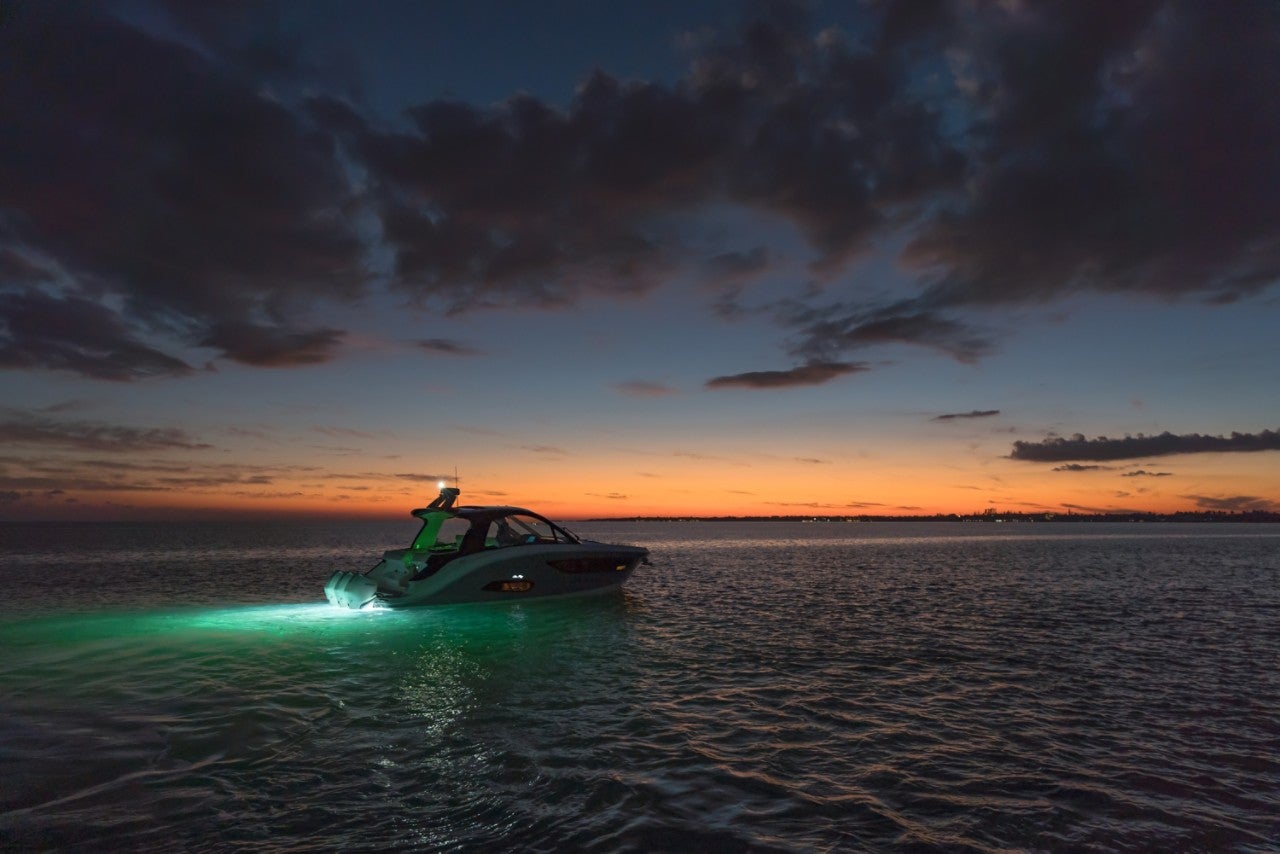Night Boating Safety: Navigating After Dark
As the fall season ushers in shorter days and longer nights, boaters must be cautious about finding themselves on the water after dark. Whether you're returning from a delightful waterfront dinner, planning a moonlit romantic cruise, or extending your boating adventure overnight, ensuring safe night boating is paramount. In this comprehensive guide, we'll present a set of tips to help you navigate the waters with confidence, focusing on the keyword "night boating safety."
1) Preparing Your Gear for Night Boating
Here's how to prepare for your night boating adventure and ensure that your equipment is in optimal condition for a safe voyage
Check Your Lights and Equipment:
- Ensure that your flashlights and headlamps are powered by fresh batteries.
- Have your binoculars readily accessible at the helm.
- Locate personal flotation devices (PFDs) for everyone onboard.
- Consider having all passengers wear a PFD equipped with an attached strobe light or glowstick for emergencies.
- Verify that your boat's engine(s) are in excellent working condition.
- Double-check the functionality of all navigation and communication electronics.
- Test the running lights to ensure they are in perfect working order.
Keep Your Crew Prepared:
- Pack hot drinks and snacks to keep your crew alert and engaged during nighttime passages.
- Brief your crew on your specific nighttime boating rules and guidelines before setting out.
2) Navigating Cautiously for Night Boating Safety
Night boating presents reduced visibility, which requires a cautious approach. Here's what you need to know:
Preserve Night Vision:
- Refrain from using white light inside the vessel to preserve your night vision.
- Utilize flashlights with red filters when necessary.
Assign a Lookout: When traveling with others, assign one person to keep a constant eye on the horizon with a periodic 360-degree scan to watch for other vessels approaching from behind or at various angles.
Avoid High Speeds: Unless you have ideal conditions, such as a full moon, open waters, and no traffic, avoid running your boat on plane close to the shore.
Embrace Your Sense of Hearing:
- Emphasize your heightened sense of hearing during the night as it becomes more acute when you can't rely on your eyes.
- Minimize noise by turning off the stereo and encouraging quiet conversations.
- Listening for fog horns, bells, or other approaching boats can be crucial for night boating safety.
3) Trust Your Instruments and Navigation Lights
Understand Navigation Lights:
- Understand the meaning of the different navigation lights.
- Red and green lights indicate a boat's direction, while white lights typically appear at the stern.
- Both red and green lights suggest another boat is approaching, while a white light usually means a boat is moving away.
- Confirm that your navigation lights are operational before departure to ensure your boat is visible to others.
4) Docking with Caution at Night
When approaching your destination, be it a dock or another vessel, follow these tips:
Avoid Using Headlights:
- Avoid using headlights or spotlights until you're in close proximity and need to examine details like cleats and handholds.
Approach Slowly:
- Approach a dock at a speed at which you're comfortable making contact, whether it's daytime or nighttime.
- Instruct your crew to step off the boat calmly when you're close to the dock, rather than leaping onto it.
Check Knots and Hitches:
- Prior to leaving your boat unattended in a slip for the night, double-check the knots and hitches to prevent unexpected issues.
5) Overnighting Safely on Your Sea Ray
Sea Ray cabin cruiser boats such as our Sundancer sport cruisers or our SLX models were made for overnight stays. Safe overnighting on your Sea Ray is akin to glamorous camping (glamping). Here's what you need to consider:
Comfortable Bedding: Ensure you have comfortable bedding, which may mean a sheet and pillow in warmer climates or extra blankets and a sleeping bag for colder nights.
Keep Insects at Bay: Keep mosquitoes at bay with screens on hatches or use insect repellent.
Secure Anchoring:
- Verify that your anchor is secure and that there's enough room for swinging in case of wind shifts.
- In cases of uncertain anchoring or expected weather changes, designate an anchor watch.
Deck Inspection:
- Before turning in for the night, take a flashlight and inspect the deck for loose items that could become airborne in a gust of wind.
- Conserve battery power by turning off unnecessary equipment.
- Ensure everything is securely stowed, as sounds on a boat tend to amplify at night.
Safe boating at night primarily relies on preparation, vigilance, and gradually gained experience. Carefully plan your journey, prepare your boat and gear, educate your crew, and you'll find a thrilling new adventure in the world of nighttime boating.
For more information, read our guide on preparing your boat for winter
This is for general information purposes only. Your use or reliance on any of the information in this Blog is solely at your own risk. Under no circumstance will we have any liability for any loss or damage of any kind incurred as a result of the use of any of the information provided.
Options and features mentioned subject to change. Please confirm availability of all accessories and equipment with an authorized Sea Ray dealer.
